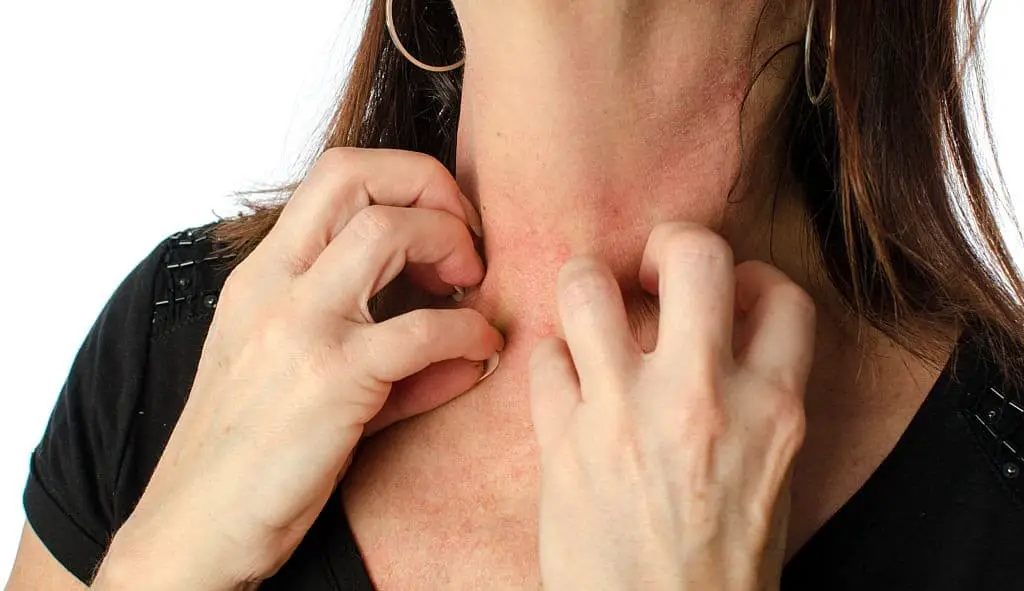
Tanning is a great way to achieve great skin tone and feel sun-kissed. While it’s mostly done for beauty and a fun pastime, others may find it different, particularly those who have eczema. Many often wonder about how tanning and eczema connect, asking, “Is tanning good for eczema?”
There have been many reports about the benefits tanning can do for the skin condition, but will it work for you? Read on and find out why tanning for eczema can be beneficial and if you should try it.
What Is Eczema?

Eczema is a common and non-contagious dry skin condition, causing dry and scaly skin with some redness and itching. Some of those who have eczema may experience skin cracks and a bit of bleeding.
This skin condition is caused by the skin producing less fat and oil compared to normal skin, lessening the ability to retain water and compromising its protective barrier. This can allow allergens, irritants, and bacteria to pass through your skin easier, causing your skin to be dry and damaged quicker if not cared for properly.
Is Tanning Good For Eczema?
There are various treatments for eczema, and some people have promoted the benefits of tanning to address their symptoms. This is because they say tanning can diminish the visibility of their rashes, even disappearing altogether.
Well, a new study has shown that sun exposure can alleviate eczema symptoms! This is because the UV rays can trigger a release of compounds in the skin, which dampens the inflammation that causes skin damage.
People who have severe eczema are prescribed with UV light therapy, which may improve itchiness associated with eczema.
Furthermore, sunlight is a source of vitamin D, which can help with your skin health and immune system. Because some people with eczema are deficient in vitamin D, staying under the sun may help supplement their skin.
It may also be worth mentioning that those with eczema differ from flareups more during the winter months when they aren’t spending a lot of time under the sun.
So will UVB treatments (such as tanning beds) help provide the proper benefits tanning under the sun (with UVA) gives? Studies show that those who received UVB treatments from controlled environments don’t have similar results compared to those who went under the UVA rays. This is because UVA rays penetrate deeper into the skin.
Read more: Can You Still Get a Tan With SPF50? More Advice Here
A Fair Warning Against Tanning With Eczema
YES, tanning with eczema is proven beneficial to help lessen flareups and skin redness or rashes. However, we can’t deny that there are many risks to tanning, especially when overdone.
Both UVA and UVB rays can damage your skin in different ways, causing premature aging, sunburns, spots, or even skin cancer.
That’s why it’s important to seek help from your dermatologist for any treatments and to receive a go signal if tanning can help with your specific condition and skin type.
There aren’t only UV light treatments you can do in controlled environments for safety, but vitamin D supplements and topical creams that can help diminish the symptoms. Avoid tanning salons and go for proper UV light procedures from medical professionals.
If you are permitted to go tanning for your symptoms, you must be wary and use proper protection. I recommend that you expose yourself to sunlight for only up to half an hour several times a week, going only during early morning or evening. Furthermore, use the right sunscreen with at least SPF50 to protect your skin further.
If you want to learn more about tanning and how it helps with eczema symptoms, check out this understandable video:
Wrapping It Up
Eczema is a common skin condition that can get irritating when left untreated. Tanning and sun exposure can help because of its vitamin D and nitric oxide components from UV rays, but the only fi did properly. It may not be for EVERYONE who suffers from eczema, but it’s worth mentioning it to your medical professional.
I hope that my article answered your question, “is running good for eczema? Now that you know the answer, start asking your dermatologist for advice and be sure to get PROPER sun exposure.

Hi Everyone, BeYoungAholic’s aim is to help women who have lost their self-confidence because of the way they look. We will provide you tips and bits of advice on how to take care of yourself and maintain your youthful look. So, Enjoy the blog!
